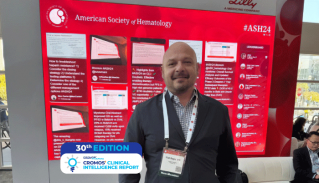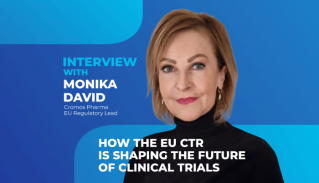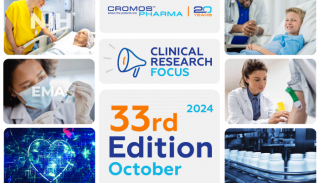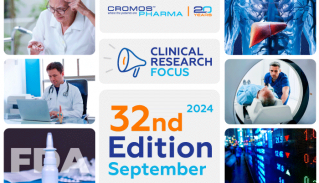
Fit-for-Purpose Biotech – CRO Collaboration: The FSP Model
In the evolving landscape of biotechnology and pharmaceutical research, the right level of collaboration is paramount. When working with Contract Research Organizations (CROs), many biotech professionals are turning to Functional Service Provider (FSP) models to enhance efficiency, flexibility, and the seamless integration of external expertise.
What is an FSP Model?
An FSP model is a form of partnership between a biotech company and a CRO, where the CRO provides specialized services and expertise in specific functional areas of drug development. Unlike traditional outsourcing, where entire projects are delegated, FSP models offer more flexibility by allowing biotech companies to engage CROs for specific tasks or functions, such as clinical trials, data management, or regulatory affairs.
The Advantages of Using FSP Models with CROs
- Flexibility: FSP models allow biotech professionals to cherry-pick the services they need, tailoring the partnership to their specific project requirements. This flexibility is invaluable in a dynamic industry where project scopes often change.
- Cost Efficiency: By engaging CROs for only the functions necessary for a project, biotech companies can manage costs more effectively. This pay-as-you-go approach reduces the need for large upfront investments.
- Specialized Expertise: CROs often have specialized knowledge and resources that can significantly enhance a project’s success. FSP models enable biotech companies to tap into this expertise while maintaining control over their core functions.
- Faster Turnaround: FSP models facilitate quicker project initiation and completion. Biotech professionals can leverage the CRO’s existing infrastructure and experience, leading to shorter timelines and faster time-to-market.
How to Implement FSP Models in Collaboration with CROs
- Define Project Scope: Clearly articulate the scope of the project and identify which functions can be outsourced to the CRO. This may include clinical trial management, data analysis, regulatory support, or other specialized tasks.
- Select the Right CRO: Choose a CRO that has a proven track record in the specific functions you need. Ensure that they have the expertise, resources, and infrastructure to support your project.
- Establish Effective Communication: Open and transparent communication is crucial. Regular updates and a collaborative approach between the biotech company and the CRO are essential for success.
- Monitor Progress and Quality: Implement robust quality control mechanisms to ensure that the work conducted by the CRO aligns with your project’s standards and objectives.
- Flexibility in Contractual Agreements: FSP models offer room for flexibility. Design contractual agreements that allow adjustments as the project evolves or as new needs arise.
Let’s explore a few successful case studies using Cromos Pharma, a midsized CRO, as an example of how the FSP model can lead to notable achievements in clinical research.
Case Studies
Case Study 1: Accelerating Clinical Trials
Background: A biotech company was in a race against time to conduct clinical trials for a breakthrough cancer therapy. They needed a CRO with specialized oncology expertise and the ability to swiftly initiate trials.
Solution: The biotech partnered with Cromos Pharma, leveraging their FSP model for clinical trial management. Cromos Pharma provided an experienced team with a deep understanding of oncology trials and accelerated site selection, patient recruitment, and data collection in the countries that had the highest potential for rapid study startup and high recruitment potential.
Outcome: With Cromos Pharma’s support, the clinical trial was completed ahead of schedule. The therapy received fast-track designation from regulatory agencies, and the biotech company was able to expedite the drug’s development, benefiting cancer patients sooner.
Case Study 2: Regulatory Affairs Expertise
Background: A biotech startup with a promising new drug needed to navigate complex regulatory requirements for multiple geographies. They lacked in-house regulatory expertise.
Solution: The startup partnered with Cromos Pharma’s FSP model for regulatory affairs. Cromos Pharma offered a dedicated team of regulatory experts who provided guidance on submissions, compliance, and interactions with regulatory authorities.
Outcome: With Cromos Pharma’s assistance, the startup successfully obtained regulatory approvals in multiple regions, expanding the drug’s potential market reach. This partnership not only saved time but also ensured that the regulatory process was handled with precision.
Case Study 3: Data Management Excellence
Background: A mid-sized biotech company had accumulated a large volume of clinical trial data but lacked the resources to effectively manage and analyze it.
Solution: The biotech firm collaborated with Cromos Pharma using the FSP model for data management services. Cromos Pharma offered a team of skilled data experts who cleaned, organized, and analyzed the data, providing valuable insights for decision-making.
Outcome: With Cromos Pharma’s support, the biotech company could make data-driven decisions about the efficacy of their drug candidates. This led to the prioritization of the most promising candidates and the discontinuation of less viable options, ultimately saving time and resources.
It is important to note that small CROs often lack the required skillset while large CROs only interested in full service outsourcing. These case studies exemplify the benefits of the FSP model, particularly when working with midsized CROs like Cromos Pharma.
By tailoring the partnership to specific project needs, biotech professionals can access specialized expertise, expedite processes, and maintain control over their core functions, ultimately resulting in successful drug development and regulatory approval. The strategic use of the FSP model can be a pivotal factor in the journey from research to market for biotech companies of all sizes.






























